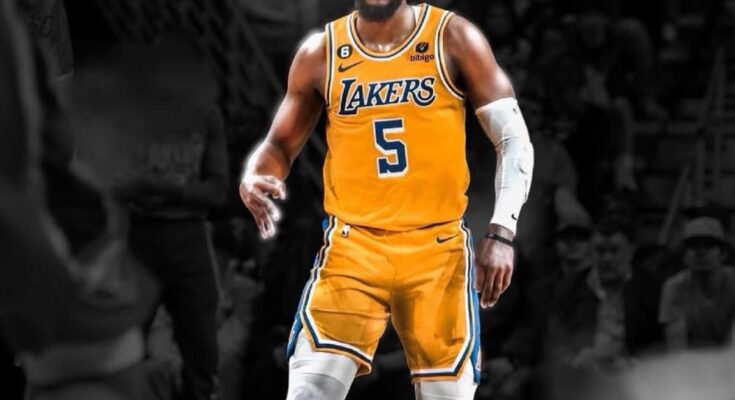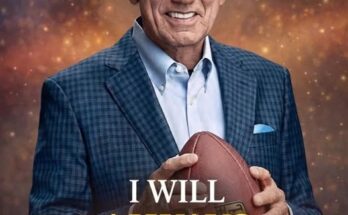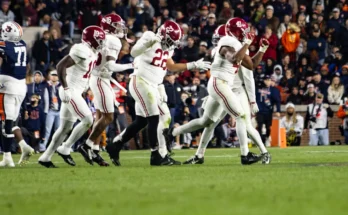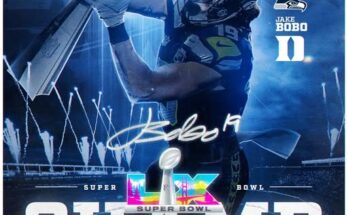“BREAKING: Lakers Eye Shocking Malik Beasley Reunion—Speculation Heats Up as Financial Hurdles Could Force Creative Veteran Minimum Deal”
The Los Angeles Lakers have never shied away from bold moves, surprising decisions, or controversial roster shakeups, and that reputation has fueled constant speculation every offseason about who might don the purple and gold next. This summer, the Lakers are once again at the center of swirling rumors as reports emerge linking them to a potential reunion with guard Malik Beasley. The idea of Beasley returning to Los Angeles may not have seemed likely after his previous stint ended with disappointment, but the realities of the team’s financial limitations, coupled with their ongoing search for reliable depth and perimeter shooting, have brought his name back into the conversation. While nothing has been confirmed and much of this remains speculative, the buzz alone is enough to spark intrigue about what a reunion could mean for both the player and the franchise.
Beasley, a proven scorer and floor-spacer in the NBA, joined the Lakers during the 2022-23 season as part of a trade deadline overhaul that completely reshaped the team’s roster around LeBron James and Anthony Davis. That period was pivotal, as the Lakers went from being a team flirting with missing the play-in to one that made an unexpected run to the Western Conference Finals. However, Beasley’s role in that story was complicated. While he arrived with a reputation as a dangerous three-point shooter capable of putting up points quickly, his performance in the postseason left much to be desired. Struggles with consistency and shooting slumps eventually pushed him out of the playoff rotation, and the Lakers declined his team option, allowing him to enter free agency. Many assumed that chapter of Beasley’s career in Los Angeles had closed for good. Yet, the NBA often has a way of circling back, and now, reports suggest the Lakers are at least considering whether a second stint could work—albeit under very different circumstances.
The Lakers’ interest is reportedly constrained by significant financial restrictions. The team has little cap space to operate with, largely tied down by massive contracts for James and Davis, as well as a series of mid-sized deals handed out to role players in recent years. With the luxury tax and second apron rules putting enormous pressure on high-spending teams, Los Angeles cannot simply spend its way into depth the way it might have in years past. This means that if the Lakers truly want to explore a reunion with Beasley, it would almost certainly have to be structured as a veteran minimum deal. That reality alone presents challenges, as Beasley, despite his ups and downs, still has value as a scorer and shooter in the league. Whether he would be willing to accept such a contract is one of the big unknowns in this discussion.
From the Lakers’ perspective, the allure of Beasley is understandable. Even though his playoff struggles remain fresh in fans’ minds, his skill set aligns with some of the team’s most glaring needs. Over the past few years, the Lakers have been plagued by inconsistent perimeter shooting. Opponents have routinely clogged the paint against James and Davis, daring role players to beat them from beyond the arc. While Los Angeles has added shooters in small bursts, they have lacked a consistent, reliable sniper who can stretch the floor night after night. Beasley, when at his best, provides exactly that. At various points in his career, he has averaged near 40% from three-point range on high volume, making him a threat who defenses cannot ignore. His ability to heat up quickly and change the momentum of a game could give the Lakers the kind of offensive jolt they have often lacked outside of their two stars.
Of course, the Lakers’ brass would have to weigh the benefits against the risks. Beasley’s inconsistency has followed him throughout his career, and his defense has often been criticized as a liability. In a playoff setting where every possession is magnified, those weaknesses were exposed last time around, and it ultimately cost him a role in the Lakers’ deep run. Bringing him back would require a recalibration of expectations—he would not be expected to be a playoff starter or a third scoring option but rather a situational weapon who could provide spacing and instant offense in certain matchups. On a veteran minimum deal, that type of risk is far more palatable, especially compared to what the Lakers previously paid him.
The financial side of the equation cannot be overlooked. Teams operating near or above the luxury tax are forced to be creative with roster building, and for the Lakers, every dollar matters. The veteran minimum offers a way to bring in talent without adding undue financial burden, particularly if Beasley is willing to accept a role that reflects both his value and the team’s limitations. Creative maneuvering might still be necessary, as Los Angeles will need to balance roster spots, retain flexibility for future moves, and avoid penalties tied to exceeding spending thresholds. That balancing act will determine whether the Lakers can realistically pursue Beasley or if the speculation remains just that—buzz with little substance.
For Beasley himself, the potential reunion carries layers of intrigue. After leaving the Lakers, he has continued to carve out opportunities in the league, but his career has never fully stabilized the way many once expected. A return to Los Angeles could offer him a chance at redemption, a chance to rewrite the narrative that his time with the Lakers was defined only by missed shots and diminished confidence. Playing alongside LeBron James and Anthony Davis once again could create open looks that few other teams could consistently provide. The bright lights of Los Angeles come with pressure, but they also come with opportunity, and for a player looking to re-establish his reputation as a reliable shooter, there may be no better stage.
Fans, as always, remain divided. Some see the logic in bringing back Beasley on a cheap deal, recognizing that at his best, he could help address the Lakers’ shooting woes. Others remember too vividly the frustrations of his previous stint and question whether the team should be looking forward rather than backward. Social media has already lit up with debates, with some arguing that Beasley’s upside makes him worth the risk and others calling for the Lakers to focus their limited resources on different targets. The truth likely lies somewhere in between—the Lakers cannot afford to be overly selective given their financial constraints, but they also cannot afford to gamble too heavily on players who may not deliver when it matters most.
Another factor to consider is chemistry. The Lakers’ locker room dynamic has always been an important part of their success or failure, and adding a familiar face can sometimes provide stability. Beasley already has experience with many of the team’s core players and understands the expectations that come with wearing a Lakers uniform. That familiarity could ease his transition and allow him to contribute more effectively if given the chance. However, it also raises the question of whether the team would prefer to bring in someone new who might offer a different skill set or a more dependable defensive presence.
Ultimately, the speculation surrounding Malik Beasley’s potential reunion with the Lakers speaks to the team’s broader challenge: how to maximize the remaining years of LeBron James’ career while building a roster that can compete in a brutally competitive Western Conference. Every move, no matter how small, carries weight in that equation. A veteran minimum signing may not seem monumental on its face, but in the context of a team that has championship aspirations and limited flexibility, even marginal decisions can have outsized impact. Beasley may not be a game-changer, but in the right circumstances, he could be the kind of role player who swings a playoff game or stretches a defense enough to give James and Davis the space they need to dominate.
The Lakers’ offseason is still developing, and it remains to be seen whether these reports lead to concrete action. For now, the buzz is enough to reignite conversation about Beasley, a player whose time in Los Angeles ended with disappointment but whose potential remains tantalizing. If the front office decides to pull the trigger, it will not be without risk, but it could also be a low-cost, high-reward gamble that pays dividends. What is certain is that the Lakers, once again, are keeping fans and analysts guessing, fueling endless speculation and proving that in Los Angeles, the drama of roster moves is as much a part of the show as the games themselves.
As the rumor mill churns, all eyes will be on how the Lakers choose to navigate their financial limitations, their need for shooting, and their desire to put the best possible team around their two superstars. A Malik Beasley reunion may not be the blockbuster move fans dream of, but in today’s NBA, sometimes the quiet, under-the-radar signings make all the difference. Whether this reunion happens or not, the speculation alone is a reminder of the constant chess game that defines modern roster building and the never-ending pursuit of the perfect balance between star power and supporting cast.



